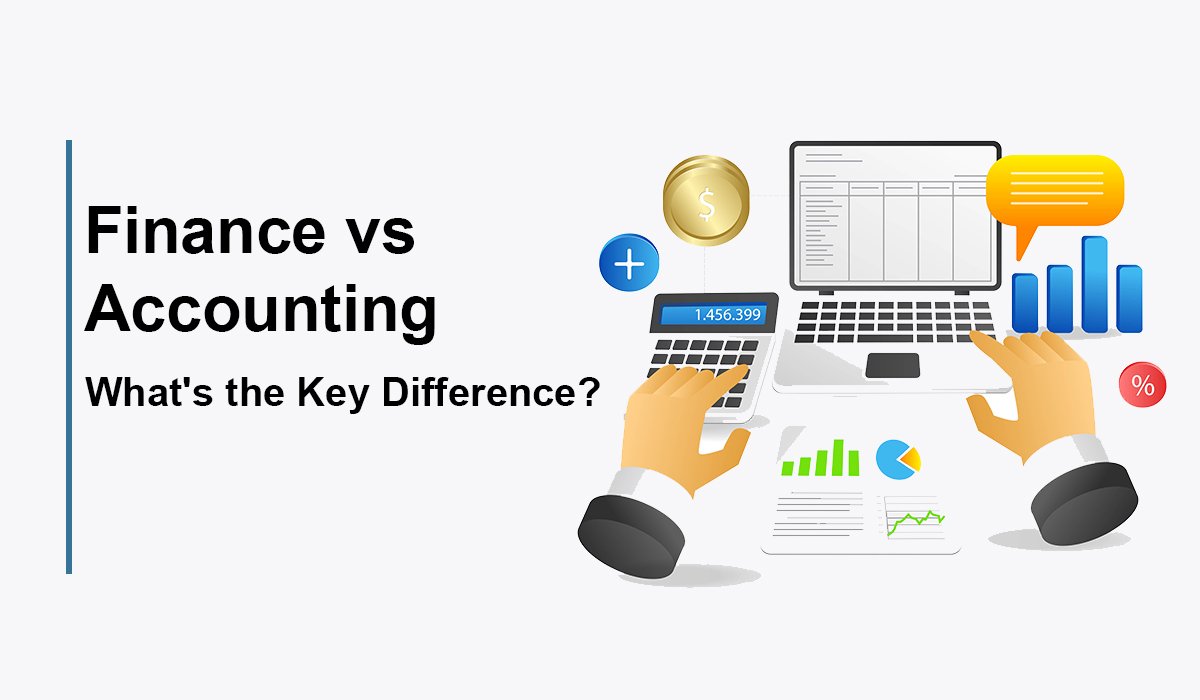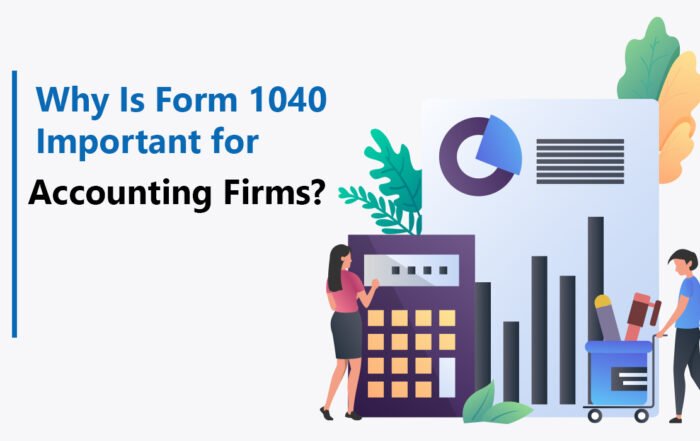When it comes to the business world, two fundamental fields often come into the spotlight: finance and accounting. While both are essential for the smooth operation of any organisation, they serve different purposes and involve distinct activities. Understanding the difference between finance and accounting is very important for any person who wants to work in the related sectors or make rational financial decisions.
So in this blog, we will be able to look into the definitive accounting and finance difference and be enlightened on their respective concerns.
Defining Finance and Accounting
Finance on the other hand is the studies of and about the management of money and capital. It covers the management decisions influencing the financial resources that include capital expenditures, debts, credit, saving, spending, and forecasting. Working in fields of accountancy and management, finance professionals study financial information to provide recommendations to managers on the best ways to increase organisational revenues and maintain sound financial health thereafter.
Accounting, in its turn, is the process of registration, storage and assessment of informational data connected with financial operations. It assesses the financial records and makes sure that an organisation’s statements tally with the set standards per regulatory requirements. They are overtime involved in the analysis of the specific financial transactions and hence provide coherent financial reports which indicate the financial performance of the organisation.
Core Difference Between Finance and Accounting
1. Scope and Focus
The fundamental variance that exists between Finance vs Accounting is in the area of coverage they accord or the emphasis area. Finance is strategic in that it focuses on the future, on what is to come and planning for it. It entails the use of information acquired from either balance sheet or organisational income statement to make forecasts and to make some decisions that will lead an organisation to those financial objectives. Finance specialists analyse investment prospects, take charge of profits and losses, and create financial strategies for organisations.
Accounting is generally considered more historical and more focused on details as a field. Accountants are professionals who deal with the recording of organisational transactions in the past and reporting them. Their work is to make sure that the records of the organisations financial transactions are correct and comprehensive, such a position gives a clear picture of the organisations financial status in a given period of time. This past information is then employed to develop the other financial statements that include the balance sheet, income statement, and cash flow statement.
2. Types of Activities
In Finance vs Accounting, the activities are centered on investment in finance on risks are considered as an investment factor, decision, and control; and on financial planning. Many of them are involved in financial analysis of a specific investment undertaking, examination of the market conditions and the formulation of the best strategy to adopt in the venture. Finance managers are responsible for managing resources focusing on efficient organisational capital to achieve the set objectives.
On the other hand, the accounting exercises entail book-keeping, auditing, tax compliance and showing of results. In their operation, Accountants keep records of any financial transactions conducted within the organisation, conduct audits in order to fulfil legal and/or fiscal requirements, and complete tax filings. They also prepare complex budgetary accounts that may offer a complete account of the state of the organisation’s finances.
3. Decision-Making
Chiefs of finance belong to the company’s strategic team of management. They interpret financial data in order to point out the trends, risks and create strategies for the organisation adhering to its goals. It enlightens organisations and companies about how to invest their finances for growth, mergers, and acquisition, capital expenses among other uses. Finance is by its very nature the process of operating and making decisions under conditions of risk where decisions made shall be advantageous to the organisation in terms of their outcome.
Managers on the other hand are involved in the decision-making process although the accountant’s role entails presenting the relevant information for decision making. They guarantee that the financial information processed is correct, credible, and presented in a format that will help the decision makers. Managers may also rely on accountants for COA and requirements of financial laws, but the accountant’s major duty does not involve the actual decision-making on financial issues, but rather they provide the framework for those decisions.
4. Skill Sets and Qualifications
The competencies needed by accounting and finance workers are distinct because of their work responsibilities. That is why finance specialists require extraordinary analytical and strategic thinking abilities. . In most organisations, it is recommendable for an individual to have background knowledge in economics, mathematics or business administration if she/he intends to work in the finance division. One can also earn certification like Chartered Financial Analyst (CFA) or the Financial Risk Manager (FRM) to improve the qualifications of a finance professional.
While on the other hand, accountants require a very sharp sense of detail and brightness concerning the accounting policies and procedures. They need to be proficient in book-keeping, auditing as well as fiscal reporting. The education which is normally demanded for this type of job is an accounting degree or any other closely related degree and professional certifications such as the CPA or CA are highly recommended in the line of work.
5. Regulatory Compliance
Accounting is a standardized profession that has to be in compliance with certain rules and regulations. Their work incorporates a need to make sure that the corporations’ financial statements are in compliance with the GAAP or the IFRS. They have to keep themselves acquainted with general taxes and other legal provisions so that legal compliance of the organisation can be maintained.
Finance, which is also regulated by the laws, is more adaptable in comparison with the Accounting. Financial decision makers are subject to some regulatory measures; however, their major concern entails the achievement of the highest possible return on investment and control of risks. They are usually employed within larger legal guidelines and might be more flexible in their decision-making as compared to accountants.
Relationship Between Finance and Accounting
In any case, accounting and finance are interrelated and frequently complementary fields in the contemporary world. Accounting records are the basis for all financial planning and analysis that is carried out in an organisation. If accurate financial information was not available, finance specialists would not be in a position to advise. In the same regard, the management and decisions in the realm of finance affects the accounting and reporting of a firm.
While finance entails the management of the organisation’s financial resources, accounting focuses on the recording, analysing and interpreting of this resource. Accountants guarantee that this information is correct and conforms to the basic legislative requirements, whereas financial specialists utilise these numbers in his or her company’s quest to expand and make a lot of profound decisions. Altogether, these components form the effective system of financial management that corresponds to goals and objectives of the organisation and provides its long-term sustainability.
Conclusion
In conclusion, it is found that although it is quite essential to difference between finance and accounting as they are two different fields with their respective responsibilities, both these fields are indispensable in managing the financial assets of an organisation. Finance is a management process that involves identifying, evaluating, and articulating the needs of business in the future and managing funds, while accounting is a system of keeping, presenting, and summarising the financial transactions, which have already taken place.
At Lints Advisors, we recognize the importance of both accounting and finance in achieving business success. Our team of experts is dedicated to providing comprehensive financial and accounting services that meet the unique needs of our clients. Whether you need strategic financial advice or accurate accounting support, Lints Advisors is here to help you navigate the complexities of the financial world.
Financial Sector Trends: What the 2025-26 Budget Reveals
The Union Budget 2025-26, unveiled by Finance Minister Nirmala Sitharaman, has set the stage for transformative changes in India's financial sector. The upcoming budget concentrates on developing economic expansion while making credit options more accessible [...]
Empowering Women: Financial Planning for 2025
In today's dynamic financial world, empowering women through tailored financial planning is more crucial than ever. Women often face unique financial challenges, including longer life expectancies, career breaks for caregiving, and persistent wage gaps. Addressing [...]
Why Is Form 1040 Important for Accounting Firms?
When it comes to the world of taxes, Form 1040 holds a central position. It is often referred to as the "U.S. Individual Income Tax Return" and serves as the primary document taxpayers use to [...]





